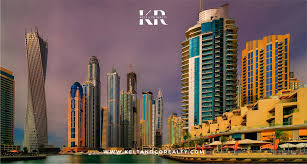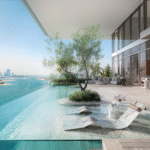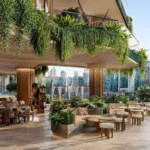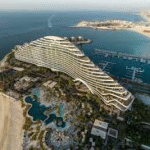Now Reading: Dubai Real Estate 2025: Key Trends Every Buyer Should Know
-
01
Dubai Real Estate 2025: Key Trends Every Buyer Should Know
Dubai Real Estate 2025: Key Trends Every Buyer Should Know
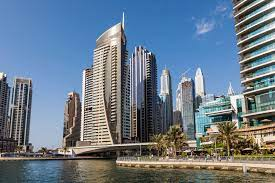
Table of Contents
Picture yourself owning a sleek apartment with views of Dubai’s glittering skyline, or a villa where your investment grows in a city that’s always pushing boundaries. In 2025, Dubai’s real estate market is thriving, with 96,000 transactions worth $87 billion in the first half, 58% driven by buyers from the UK, India, Russia, and China. The market offers 100% freehold ownership, a dirham pegged to the U.S. dollar, and no personal income tax, capital gains tax, or annual property taxes.
With 6-10% rental yields and 7-15% price appreciation, Dubai outperforms London (2-4%) and New York (2-3%). Properties over $545,000 qualify for a 10-year Golden Visa, while smaller units grant 2-year residency. Fueled by 25 million tourists and a 4% population surge, trends like smart homes, sustainable developments, and affordable island properties are shaping the future. Navigating fees, VAT, and 2025 regulations is key to seizing these opportunities.
Why Dubai’s 2025 Market Is a Buyer’s Dream
Located 15-40 minutes from Dubai International Airport via Sheikh Zayed Road or metro lines, areas like Downtown Dubai, Dubai Marina, and Dubai Hills Estate offer apartments, villas, and penthouses with vacancy rates of 2-3%, compared to 7-10% globally. You keep 100% of rental income $14,400-$150,000 annually on $200,000-$5 million properties versus $7,920-$90,000 elsewhere after taxes.
Zero capital gains tax saves $12,000-$300,000 on $60,000-$1.5 million profits, and no property taxes save $2,000-$50,000 yearly, unlike London’s council tax (up to 2%) or New York’s property tax (1-2%). Residential purchases skip 5% VAT ($10,000-$250,000), and the Golden Visa boosts residency appeal. With smart tech, eco-conscious designs, and proximity to Burj Khalifa, these properties deliver 7-15% price growth, blending lifestyle with investment potential.
Buying in Dubai feels like stepping into a world of opportunity.
No Personal Income Tax: Rentals That Fuel Wealth
Dubai imposes no personal income tax, letting you keep every dirham, unlike the U.S. (up to 37%) or UK (up to 45%). A $200,000 Dubai Islands apartment yields $14,400-$21,600, saving $5,328-$9,720; a $5 million Palm Jumeirah villa yields $120,000-$150,000, saving $54,000-$67,500. Short-term rentals, driven by 25 million tourists visiting Burj Al Arab or Dubai Marina, require a DTCM license ($408-$816), boosting yields by 10-20% ($1,440-$30,000). Long-term leases, popular in family-friendly Dubai Hills, need Ejari registration ($54-$136) for stability. Non-compliance risks fines up to $13,612, so licensing is essential. AI-driven pricing tools and smart home systems maximize profits, especially in high-demand areas.
Tax-free rentals feel like a monthly spark of prosperity.
Zero Capital Gains Tax: Profits That Soar
Dubai offers zero capital gains tax, letting you keep 100% of sale profits. Selling a $200,000 Dubai Creek apartment for $240,000 (20% appreciation) yields a $40,000 tax-free profit, saving $8,000-$11,200 versus London (20-28%) or New York (20-37%). A $5 million Palm Jumeirah villa sold for $6.25 million delivers a $1.25 million tax-free gain, saving $250,000-$350,000. Price growth varies: 10-15% in premium areas like Palm Jumeirah, 7-12% in emerging areas like Dubai Islands. A 4% DLD fee ($8,000-$200,000), often split, applies, but tax-free profits make Dubai a wealth-building haven.
Keeping every dirham feels like a financial celebration.
No Annual Property Taxes: Ownership That Feels Light
Unlike global markets, Dubai has no annual property taxes, saving $2,000-$50,000 yearly on $200,000-$5 million properties versus London’s council tax ($4,000-$100,000) or New York’s property tax (1-2%). Maintenance fees range from $3,000-$25,000, covering amenities like pools or marinas, competitive with global luxury markets. A 5% municipality fee on rentals ($720-$7,500) applies, reasonable for premium areas. These costs make ownership affordable, supporting consistent returns.
No property taxes feel like a warm embrace for your investment.
VAT Rules: A Savvy Investor’s Edge
Residential purchases skip 5% VAT, saving $10,000-$250,000 on $200,000-$5 million properties, unlike commercial properties or the UK’s stamp duty (up to 12%, or $24,000-$600,000). Off-plan purchases, common in Dubai Creek and Dubai Islands, incur 5% VAT on developer fees ($2,000-$100,000), recoverable via Federal Tax Authority (FTA) registration ($500-$1,000).
Short-term rental operators must register for VAT if revenue exceeds $102,041, charging 5% but claiming credits on DTCM fees ($408-$816). A $200,000 apartment yielding $14,400-$21,600 incurs $720-$1,080 in VAT, with $300-$600 in credits; a $5 million villa yielding $120,000-$150,000 incurs $6,000-$7,500 in VAT, with $2,000-$3,000 in credits. Non-compliance risks fines up to $13,612, so meticulous records are crucial.
VAT exemptions feel like a clever boost to your profits.
DLD Fees and Title Deeds: Securing Your Investment
The 4% DLD fee, typically split, applies: $8,000 for a $200,000 Dubai Islands apartment or $200,000 for a $5 million Palm Jumeirah villa. Gift transfers to family or shareholders reduce DLD to 0.125%, saving $7,750-$193,750. For example, gifting a $5 million villa cuts DLD from $200,000 to $6,250. Title deed issuance costs $136-$272, requiring DLD registration. Broker fees, typically 2% ($4,000-$100,000), may be waived for off-plan projects like Creek Waters. Mortgage registration (0.25% of the loan, or $500-$12,500) and valuation fees ($680-$1,360) apply for financed deals. The 2025 Oqood system ensures escrow compliance for off-plan purchases, protecting your investment.
Title deeds feel like the key to your Dubai dream.
Corporate Tax: A Business Buyer’s Note
The 9% corporate tax, introduced in 2023, applies to businesses with profits over $102,110. A company leasing a $200,000 Dubai Islands apartment yielding $14,400-$21,600 faces a 9% tax ($1,296-$1,944), reducing net income to $13,104-$19,656. A $5 million Palm Jumeirah villa yielding $120,000-$150,000 incurs $10,800-$13,500 in tax. Qualified Free Zone Person (QFZP) status in areas like Dubai Multi Commodities Centre (DMCC) avoids this, saving $3,060-$36,000, with setup costs of $2,000-$5,000. Small business relief waives corporate tax for revenues under $816,000 until December 31, 2026. Individual ownership skips this tax, ideal for most buyers.
Corporate tax feels like a hurdle you can easily clear.
New Tax Rules for 2025
The Domestic Minimum Top-up Tax (DMTT), effective January 1, 2025, imposes a 15% tax on multinationals with revenues over €750 million ($793 million). Individual investors and smaller entities are unaffected, and QFZP status avoids DMTT, saving $3,060-$36,000. Cabinet Decision No. 34 refines Qualifying Investment Fund (QIF) rules, exempting corporate tax if real estate income is below 10%. A QIF earning $1 million, with $100,000 from rentals, faces 9% tax ($8,100) on 90% ($900,000). A July 2025 policy allows corporate tax deductions on fair market value depreciation, saving $545-$9,000 annually for a $1 million property revalued at $1.25 million.
New rules feel like a puzzle with prosperous solutions.
Key Trends Shaping Dubai’s 2025 Market
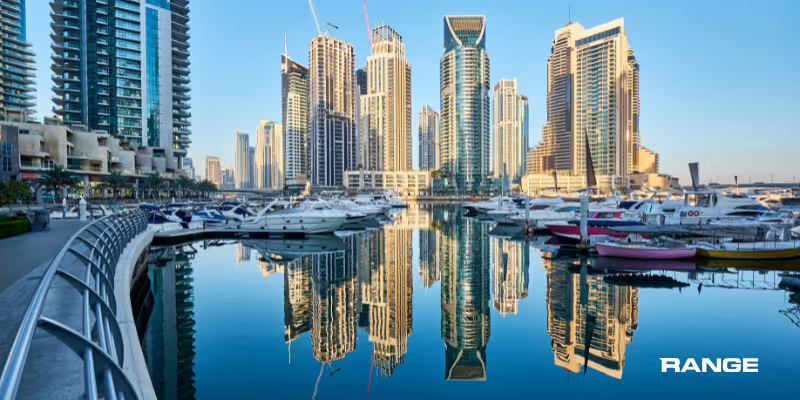
1. Smart Home Integration
Smart home-enabled properties in Dubai Hills Estate and Dubai Creek Harbour ($200,000-$3 million) offer 7-10% yields and 8-12% price growth, featuring AI-driven climate control and IoT security. A $200,000 Creek Waters apartment yields $14,400-$21,600 tax-free, saving $5,328-$9,720. Selling for $240,000 yields a $40,000 tax-free profit, saving $8,000-$11,200. No property taxes save $2,000-$5,000, and VAT exemption saves $10,000. Maintenance fees are $3,000-$8,000, with a 5% municipality fee ($720-$1,080). QFZP saves $3,060-$12,240. U.S. investors deduct depreciation ($3,636-$9,091), saving up to $3,182. Smart tech drives demand among tech-savvy buyers.
Smart homes feel like living in a futuristic oasis.
2. Sustainable Developments
Eco-conscious projects like Dubai Islands’ Azura Residences ($200,000-$500,000) offer 7-10% yields and 8-12% price growth, with solar panels and green designs. A $200,000 apartment yields $14,400-$21,600 tax-free, saving $5,328-$9,720. Selling for $240,000 yields a $40,000 tax-free profit, saving $8,000-$11,200. No property taxes save $2,000-$5,000, and VAT exemption saves $10,000. Maintenance fees are $3,000-$8,000, with a 5% municipality fee ($720-$1,080). QFZP saves $3,060-$12,240. U.S. investors deduct depreciation ($3,636-$9,091), saving up to $3,182. Sustainability appeals to environmentally conscious investors.
Green living feels like investing in a brighter planet.
3. Affordable Island Properties
Affordable island apartments in Jumeirah Bay and The World Islands ($200,000-$500,000) offer 7-9% yields and 8-12% price growth, near luxury dining and beaches. A $300,000 Jumeirah Bay apartment yields $21,000-$27,000 tax-free, saving $9,450-$12,150. Selling for $360,000 yields a $60,000 tax-free profit, saving $12,000-$16,800. No property taxes save $3,000-$5,000, and VAT exemption saves $15,000. Maintenance fees are $4,000-$8,000, with a 5% municipality fee ($1,050-$1,350). QFZP saves $3,060-$12,240. U.S. investors deduct depreciation ($5,455-$9,091), saving up to $3,182. Accessibility drives demand among young professionals.
Island apartments feel like a budget-friendly coastal escape.
4. Luxury Waterfront Communities
Luxury communities like Palm Jumeirah’s Anantara Residences ($2 million-$5 million) offer 6-8% yields and 10-15% price growth, with private marinas and dining. A $2 million villa yields $80,000-$120,000 tax-free, saving $36,000-$48,000. Selling for $2.5 million yields a $500,000 tax-free profit, saving $100,000-$140,000. No property taxes save $20,000-$50,000, and VAT exemption saves $100,000. Maintenance fees are $15,000-$25,000, with a 5% municipality fee ($4,000-$6,000). QFZP saves $12,240-$36,000. U.S. investors deduct depreciation ($36,364-$90,909), saving up to $31,818. Exclusivity attracts high-net-worth buyers.
Luxury waterfronts feel like a glamorous coastal crown.
Why These Trends Matter
Price Range: Affordable apartments ($200,000-$500,000) suit budget buyers; luxury properties ($2 million-$5 million) target premium investors.
Rental Yields: 6-10%, with affordable units at 7-10% for short-term rentals (10-20%, $1,440-$7,200); luxury units at 6-8% for stable leases.
Price Appreciation: 7-15%, with luxury areas at 10-15%, affordable at 8-12%.
Lifestyle: Smart homes, eco-friendly designs, and waterfront access enhance appeal.
Amenities: Marinas, golf courses, and proximity to Burj Khalifa drive demand.
ROI Verdict: 8-12% ROI, blending lifestyle and investment potential.
Investing feels like securing a vibrant, future-ready future.
Strategies to Maximize Returns

For individuals: First, hold properties personally to avoid corporate taxes, saving $3,060-$36,000. Second, negotiate DLD fee splits, saving $4,000-$100,000. Third, use gift transfers to reduce DLD to 0.125%, saving $7,750-$193,750. Fourth, recover 5% VAT on developer fees via FTA registration ($500-$1,000). Fifth, leverage double taxation treaties with 130+ countries, saving $5,328-$67,500.
Sixth, U.S. investors deduct depreciation ($3,636-$90,909), saving up to $31,818. For corporates: Secure QFZP status, keep QIF income below 10%, and claim depreciation deductions. Hire property managers ($3,000-$25,000 annually) and tax professionals ($1,000-$3,000) to avoid fines up to $136,125. Focus on short-term rentals in affordable areas, long-term in luxury zones.
These strategies feel like a roadmap to your Dubai riches.
Risks to Watch in 2025
A projected oversupply of 182,000 units by 2026 may slightly slow price growth in affordable areas, but luxury markets like Palm Jumeirah remain resilient. Off-plan delays risk setbacks, so choose trusted developers like Emaar or Nakheel and verify escrow compliance via the 2025 Oqood system. Non-compliance with VAT or DTCM rules risks fines up to $13,612, and corporate tax errors can cost $136,125. Indian investors must report properties in India’s Foreign Asset schedule to avoid $135,000 penalties. Currency fluctuations, like a 5% dirham shift, could impact returns.
Why Dubai’s 2025 Trends Are Worth It
From affordable smart apartments to luxurious waterfront villas, Dubai’s 2025 real estate trends offer 8-12% ROI, 7-15% growth, and tax-free savings of $2,000-$300,000 annually. With Golden Visa perks, 80-85% rental occupancy, and cutting-edge lifestyles, these opportunities are prime for buyers. Navigate fees, choose your trend, and invest in Dubai’s vibrant future in 2025.
read more: Affordable Island Apartments in Dubai With Strong Growth Potential



